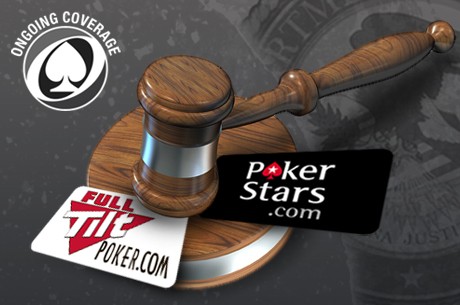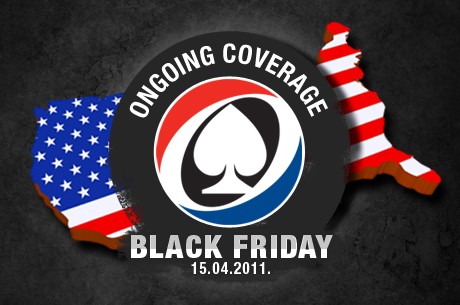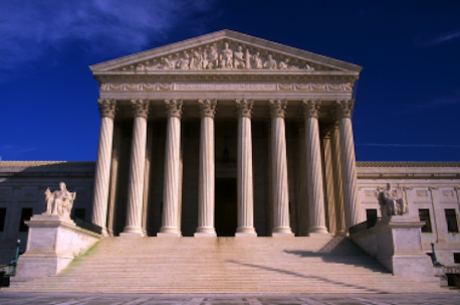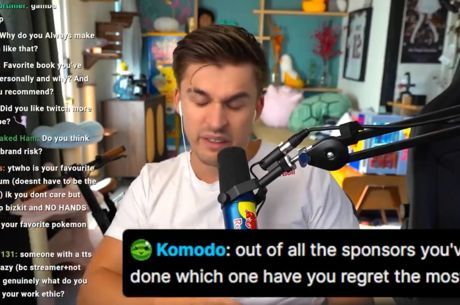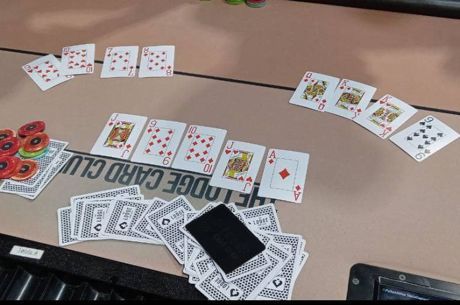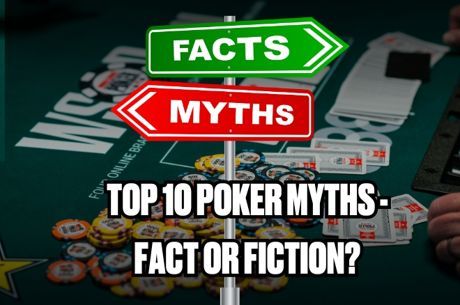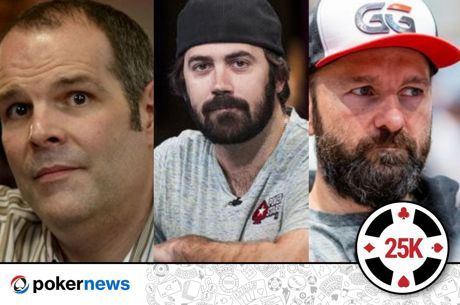A Year Later: A Small Stakes Player Reflects on Black Friday
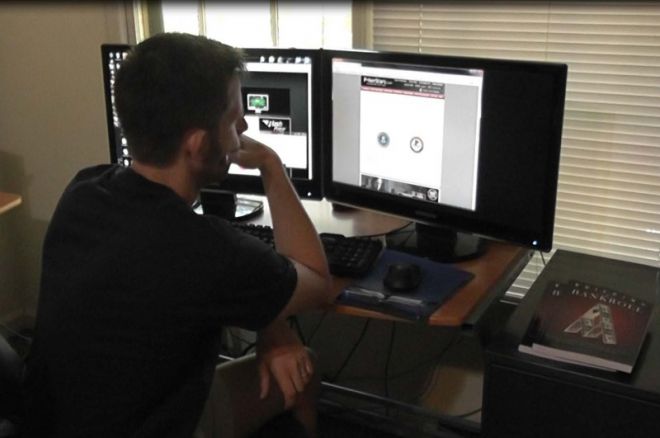
Pawel "Verneer" Nazarewicz is a CardRunners pro specializing at micro- and low-stakes no-limit hold'em. He is the author of a new book called "Building a Bankroll," which details and analyzes his experience of starting with a small bankroll and then moving up in stakes. Sections from the book and more info about the author is available at mtmicropoker.com.
I remember waking up, going to my computer, and starting my morning routine. First, I look at CNN.com and see if anything major has happened on the news. Nope. Then I check the sport scores from last night on ESPN.com. I look at my email and check out if the games are good at the stakes and site that I usually play at. If they are, I normally put in a short morning session before breakfast.
That morning, I remember seeing a message on Skype. My friend Brian Rue simply wrote, ��Did you see the news?�� I had no idea what he was talking about. I quickly looked at CNN.com and didn��t see anything out of the ordinary. Clearly he wasn��t talking about major national or international news like the tragic earthquake and tsunami disaster that hit Japan a month earlier. Something like that would be all over the news.
��Nope. What��s up?�� I replied.
��Go to FullTiltPoker.com,�� he said.
When I typed it in, I was greeted with a now all-too-familiar image:
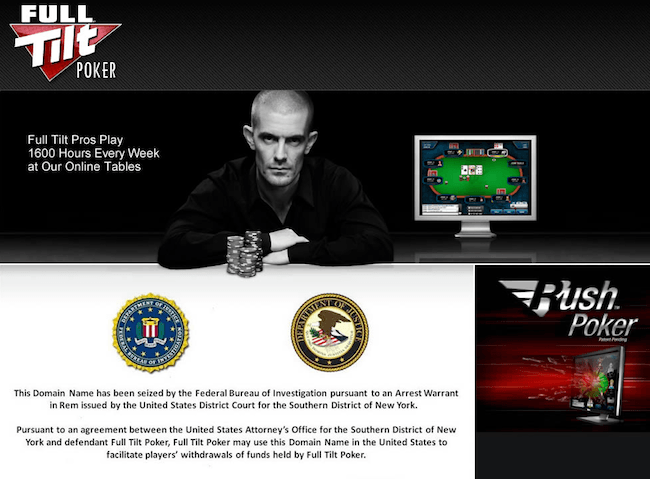
PokerStars.com had a similar looking site. I instantly hit up PokerNews and TwoPlusTwo.com to get more info. There wasn��t much.
I texted one of my friends in who is more plugged into the heart of the poker industry.
��Is the sky falling?�� I asked.
��No �� people are overreacting like they always do,�� he replied.
In retrospect, they weren��t, but at the time we hardly knew a fraction of what we know now.
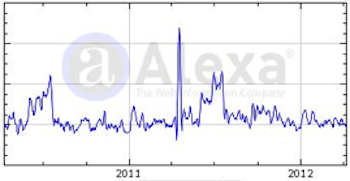
For the next few weeks, I pretty much stayed glued to PokerNews, TwoPlusTwo, and Twitter. I think Black Friday was a time when I really started both following and tweeting on a regular basis. I was hungry for any bit of news available. I wasn��t the only one.
To the right is a graph from Alexa.com of the traffic on PokerNews for the last two years:
There were three major issues that I was concerned with immediately in the wake of Black Friday and I��m going to give my current thoughts on them a year later.
- How long will this last?
- How and when will I get my money off the sites?
- Where can I play now?
How Long Will This Last?
There was already a lot of talk in the community about the necessity of formal federal legislation. Senate Majority Leader and Democratic Senator from Nevada Harry Reid even proposed a piece of legislation �� would include a 12-18 month ��blackout�� period of no online poker �� that he planned to submit to Congress in December 2010.
The purpose of this was to let U.S.-based casinos try to enter the market on a more competitive footing with the major companies like PokerStars, FullTilt, and PartyPoker. American players in the forums first complained, but then realized it was necessary and most accepted it. This would have given us plenty of warning to get our affairs in order. Black Friday, on the other hand, felt like a complete sucker punch. It was what Nassim Nicholas Taleb calls a Black Swan Event �� high impact, hard to predict, and beyond the scope of expectation. No one saw it coming, and the impact was catastrophic. It was our metaphorical 9/11.
Now, a year later, I still have no idea how long it will be before I can confidently play online again. I currently have some money on the Merge Network, but for reasons I will discuss later, I cannot plan to play professionally there.
As for legislation, all the momentum seems to be behind poker legislation:
- The U.S. economy, while showing signs of recovery, is currently coming out of a recession. Due to our high national debt and high unemployment, there is a major push from politicians to cut spending and grow revenue. Online poker is a multibillion dollar industry that would create jobs and provide revenue both on the federal and state levels.
- The key piece of federal legislation in the U.S. Congress (HR 2366 introduced by Republican Joe Barton from Texas) was passed out of committee with bi-partisan support. At the same time, New Jersey, California, Nevada, and Delaware all have state-level legislation to allow online poker. Support for these also appears to be bipartisan.
Unfortunately, 2012 is an election year, which traditionally, are not conducive to major legislative action. Neither the republicans nor democrats want to touch anything that can be used against them. Even though the stigma behind poker as a moral hazard has faded in the last decade, scandals like the ones with Ultimate Bet and Full Tilt are still fresh in the public��s mind and thus complicate the issue. Still, the money involved in the industry seems too big to keep off the table, and once the 2012 election is over, I expect legislative progress.
In summary, I don��t expect legislation to pass this year, but online poker legalization in the next 18 to 24 months seems inevitable.
How And When Will I Get My Money Off The Sites?
Both Full Tilt Poker and PokerStars quickly reassured players that their funds were safe. Because I loved playing the Rush games, most of my volume was on Full Tilt Poker. In fact, I started 2011 with $200 in my account with the goal of grinding it up to a five-figure bankroll. I accomplished my goal on April 13, but the joy of reaching it lasted less than 48 hours.
PokerStars paid out American players in less than three weeks. This seemed like a good sign. As we know now, unlike PokerStars, Full Tilt didn��t separate player funds from general funds. Its licensing didn��t mandate it. Thus, once the U.S. Department of Justice froze the funds of American players, Full Tilt no longer had the necessary capital to continue operating.
At the time, I didn��t consider the possibility of such an event, and, to be fair, neither did most people. Even those very close to the source like Tom ��durrrr�� Dwan and Phil Galfond famously reassured others on Twitter that if everyone didn��t get paid, both would put up $1,000,000 to be split among those who had money on Full Tilt Poker.
Phil Ivey sat out the whole 2011 WSOP due to the scandal, stating that he didn��t believe it was right for him to play while so many people have money tied up on the site. Since then, news of him and other pros owing Full Tilt millions of dollars has come out.
In September 2011, the French investment firm Groupe Bernard Tapie said it would purchase Full Tilt and all its assets. News on that front has been an emotional roller coaster for many players. As of the writing of this article, GBT has begun hiring customer service representatives for FTP, which seems promising, but like many players, I��m tired of getting my hopes up only to hear more bad news.
The whole situation is a major mess, but the bottom line is that this scandal has done major damage to the image of the online poker industry, regardless of whether players end up getting paid or not.
Where Can I Play Now?
An exodus of young, single, high-stakes players quickly started. A few of my friends from CardRunners set up residence in Canada and were able to play again fairly quickly. For the majority of American pros, moving out of the country just to play poker was not, and is not an option. To the casual and recreational players, it definitely isn��t.
Some have started playing more live poker, but live poker is only available in roughly half of the states. Can you name them all? Live poker is also much more of a hassle �� you need to go to the casino, wait to be seated, and then, the dynamics of live play are completely different. Live poker is the antithesis of Rush or Zoom poker, which I was able to start and end instantly.
The final option was playing at one of the few poker rooms still open to American players. In the weeks following Black Friday, I did a lot of research and narrowed my options down to Merge, Cake, and Bodog.
I deposited a few hundred dollars on the Merge Network because it offered the best software and deposit bonuses at the time. Both Cake Poker and Bodog had issues with Hold'em Manager and seemed the more difficult to navigate. The interface on Merge was most similar to what I was used to on Full Tilt and PokerStars.
The biggest concern I had, and continue to have about Merge is whether the U.S. Department of Justice will shut them down at some point, as well. Currently, I have no idea, but I am going on the assumption that it��s a real possibility and thus planning accordingly. This means I don��t keep any more money on -there than I am willing to lose (once burned, twice shy, right?), and recommend that most people do the same. Many players share my concerns.
Additionally, early cash-outs would take six weeks to go through and you could only initiate one cash-out at a time. This didn��t add to the confidence of the players. Still, as Johnny Cash might say, Merge seems like ��the cleanest dirty shirt�� at the moment.
All this has made online games available to me, particularly at the micro stakes, much tougher than they have been in the past. There are two main reasons for this: the Americans currently playing online seem to be of the more informed and serious variety, and they are playing with smaller bankrolls and thus at lower levels than they have in the past.
Most of the Americans playing on Merge are more serious about online poker because they have gone out of their way to get an account and because they don��t want to deposit too much money and have it be frozen, are forced to play on shorter bankrolls and start at lower limits than they have done before. This means that across the board, the games have more tough regulars and fewer weak recreational players.
It kind of parallels the early days of live poker that Doyle Brunson used to talk about �� lots of uncertainty, short bankrolls and few games that are mostly filled with players that have to have their poker fix.
Looking Ahead
I think this is a great time to work on improving your game and keeping it fresh. Personally, I��ve started playing micro-stakes pot-limit Omaha and thinking a lot about the differences between that and no-limit hold'em. I��ve also taken the time to write a book about my experiences of starting with small deposits and building five-figure bankrolls (which I did in both 2010 and 2011). The book, appropriately named Building a Bankroll, would probably never have been written if Black Friday didn��t happen �� most of my poker-related time would have been spent grinding and working on my own game.
So I recommend depositing a small amount and really fine-tuning your game (or learning a new one like I am trying to do). Read a lot, practice, and reflect on the experience. Once online poker comes back, which it will, all the practice and work you put in now will pay off. You will be sharper and smarter than those that chose to sit this one out.
At the same time, you can help the legislative momentum by reaching out to your congressmen and letting them know you support online poker. The Poker Players Alliance, a nonprofit advocacy group promoting poker players�� rights, has made this really easy. Just go to theppa.org and click on their ��Contact Congress�� banner. Filling in some basic info will take less than five minutes and you will make your voice heard.
It��s been a very frustrating year, but I look forward to brighter days ahead.
Disclaimer: The views expressed are those of the author and do not necessarily reflect the views of PokerNews.
Follow PokerNews on Twitter for up-to-the-minute news.

